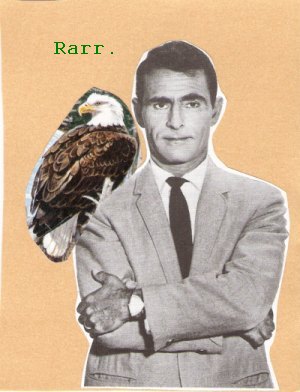I have been reading a book entitled, Why We Watch: the Attractions of Violent Entertainment. I picked this book up because it's one of the few comprehensive collections dealing with media violence that doesn't take the stance of automatically condemning it. For a long time, I have had difficulties accepting the argument that the existence of violent films or video games has led to increased violence in society, especially among the youth. I think plenty of people subject themselves to violent entertainment and never experience feelings of needing to commit violence personally. Speaking for myself, I find that I often enjoy extremely violent films, but I would never want to harm someone or something else in such a manner...and I don't think I'm a creep for finding enjoyment in such forms of entertainment.
I'm about halfway through the book right now, and so far have read chapters dealing with sports, how increased life spans has changed our perceptions of death historically, video games, children's literature, children's television programming, and increased violence in film starting with Bonnie and Clyde. Bonnie and Clyde was viewed in a very interesting context because its release in August of 1967, had directly preceded a tumultous time in American history. Race riots in Newark and Detroit, an increasingly militarized Black Panther Party, and Stokely Carmichael's remarks about "we're going to shoot the cops who are shooting our black brothers in the back in this country," all occurred in June or July of that year. The late 1960s also brought the notorious generation gap in ideologies; one that was easily identified in the reaction and response to Bonnie and Clyde.
Old-school critics at the Times and the New York Times, lambasted the film and deemed it "disgusting and irresponsible." Simultaneously, Pauline Kael, a freelance writer, wrote a manifesto that included, "the innocuousness of most of our movies is accepted with such complacence that when an American movie reaches people, when it makes them react, some of them think there must be something the matter with it - perhaps a law should be passed against it." Kael smartly correlates movies like this with ideas concerning justification for political violence as examined in such books as Fanon's The Wretched of the Earth. In many ways, the films of old Hollywood just weren't violent, though-provoking, or smart enough. Stories were tidy and safe, but therefore trite.
Bonnie and Clyde are fashionable, and despite their unlawful deeds, are characters that many  young people of the time (and today) can easily sympathize with. The film inspired songs, clothing fashion, and an aesthetic in later films for over the top stylish violence. The film is often linked to the left for its anti-authority stance and for identification with youth. However, despite being able to relate to Bonnie and Clyde and finding them "cool," the vast majority of audience members would never personally feel the need to live out such a romantic but deadly existence.
young people of the time (and today) can easily sympathize with. The film inspired songs, clothing fashion, and an aesthetic in later films for over the top stylish violence. The film is often linked to the left for its anti-authority stance and for identification with youth. However, despite being able to relate to Bonnie and Clyde and finding them "cool," the vast majority of audience members would never personally feel the need to live out such a romantic but deadly existence.
 young people of the time (and today) can easily sympathize with. The film inspired songs, clothing fashion, and an aesthetic in later films for over the top stylish violence. The film is often linked to the left for its anti-authority stance and for identification with youth. However, despite being able to relate to Bonnie and Clyde and finding them "cool," the vast majority of audience members would never personally feel the need to live out such a romantic but deadly existence.
young people of the time (and today) can easily sympathize with. The film inspired songs, clothing fashion, and an aesthetic in later films for over the top stylish violence. The film is often linked to the left for its anti-authority stance and for identification with youth. However, despite being able to relate to Bonnie and Clyde and finding them "cool," the vast majority of audience members would never personally feel the need to live out such a romantic but deadly existence.Sam Peckinpah, whose film The Wild Bunch, shares the same genre as Bonnie and Clyde, provides one quote that I find particularly interesting. "Perhaps we have become so conditioned to violence that we delight in the audacity of a film that piles it on with such gusto." Basically, the audience of the late 1960s was already seeing images from Vietnam on their nightly news. Today's generation has been living through multiple wars in the middle east and the reminder of 9-11. I don't think any of us particularly want to witness actual murders or dead bodies, but when violence is handled in a way that is so outrageous or stylish that it ceases to really be believable, it's possible that this entertainment serves as a weird way to cope with real life and dually provide a strange form of escapism.


